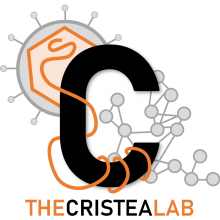Post-translational modification control of viral DNA sensors and innate immune signaling
Publication Year
2021
Type
Journal Article
Abstract
The vertebrate innate immune system confers host cells with mechanisms to protect against both evolutionarily ancient pathogens and newly emerging pathogenic strains. Innate immunity relies on the host cell's ability to distinguish between self and pathogen-derived molecules. To achieve this, the innate immune system uses germline encoded receptors called pattern recognition receptors (PRRs), which recognize various molecular signatures, including nucleic acids, proteins, lipids, glycans and glycolipids. Among these molecules, the recognition of pathogenic, mislocalized, or damaged DNA by cellular protein receptors, commonly called DNA sensors, represents a major surveillance pathway for initiating immune signaling. The ability of cells to temporally regulate DNA sensor activation and subsequent signal termination is critical for effective immune signaling. These same mechanisms are also co-opted by pathogens to promote their replication. Therefore, there is significant interest in understanding DNA sensor regulatory networks during microbial infections and autoimmune disease. One emerging aspect of DNA sensor regulation is through post-translational modifications (PTMs), including phosphorylation, acetylation, ubiquitination, ADP-ribosylation, SUMOylation, methylation, deamidation, glutamylation. In this chapter, we discuss how PTMs have been shown to positively or negatively impact DNA sensor functions via diverse mechanisms, including direct regulation of enzymatic activity, protein-protein and protein-DNA interactions, protein translocations and protein turnover. In addition, we highlight the ability of virus-induced PTMs to promote immune evasion. We also discuss the recent evidence linking PTMs on DNA sensors with human diseases and more broadly, highlight promising directions for future research on PTM-mediated regulation of DNA sensor-dependent immune signaling.
Journal
Adv Virus Res
Volume
109
Pages
163-199
ISSN Number
1557-8399
Alternate Journal
Adv Virus Res
PMID
33934827

